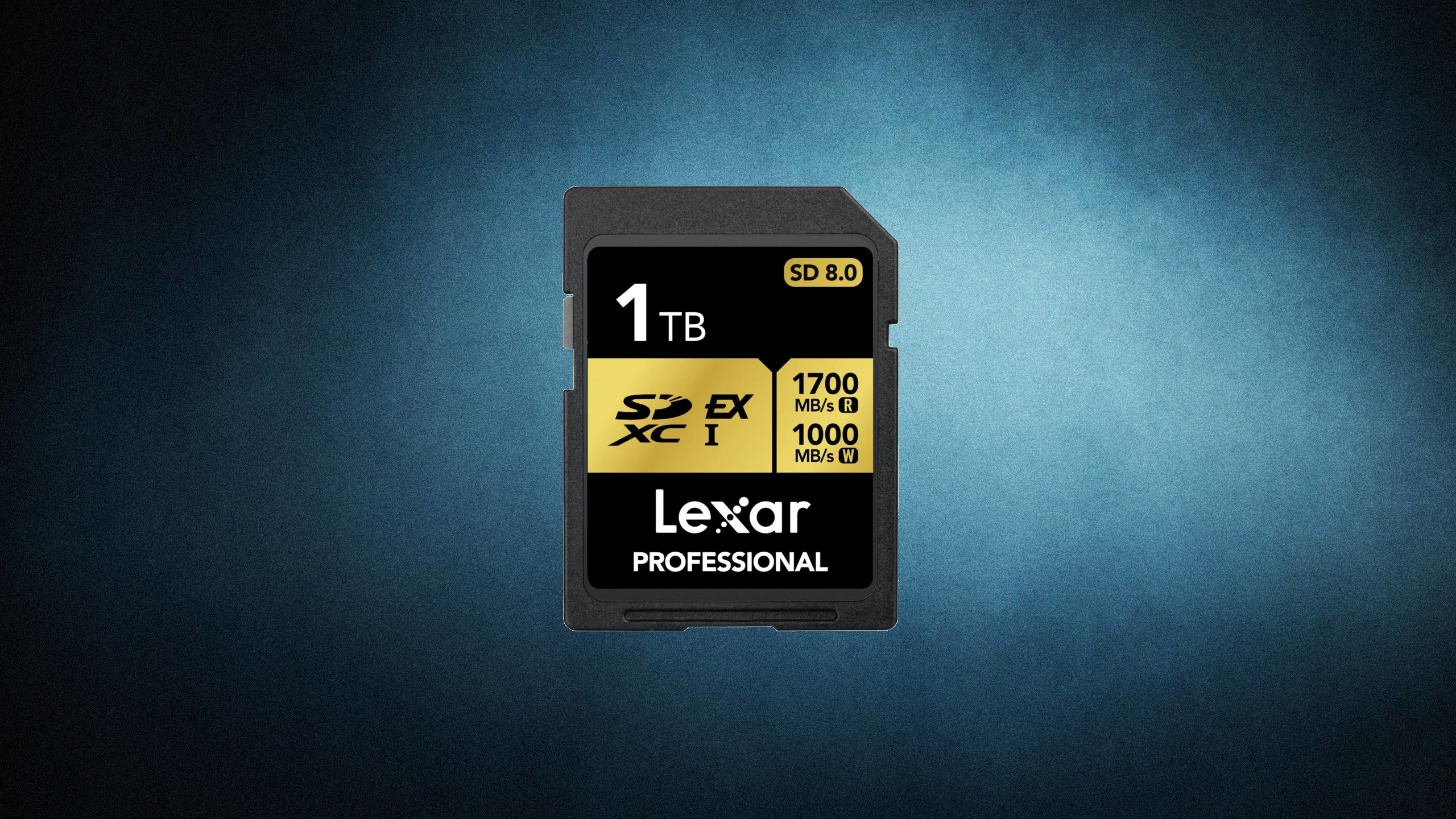
The Lexar High-Performance SD 8.0 card promises read and write speeds up to 1,700 MB/s and 1,000 MB/s, respectively. According to PetaPixel, the new SD 8.0 card is ahead of its time since it is not fully compatible with any devices that use this standard, especially cameras, downgrading its performance to the UHS-I standard.
Lexar recently rolled out a series of flash storage-based cards, including the Stainless steel variant in Gold and Silver Pro, which comply with UHS-II standards. But the one that gained the attention was the SD 8.0 standard, which utilized PCIe 4.0 lanes to achieve this speed—similar to its Lexar Professional CFexpress 4.0 card. This was possible because the new standard allowed theoretical transfer speeds up to 2 GB/s.
There is a significant caveat. Only card readers or cameras that comply with the SD 8.0 standard can take advantage of the card’s speed. However, none exists, as the standard was finalized a month ago. The SD 8.0 standard was designed to use multiple PCIe interfaces: PCIe Gen 4 x1, PCIe G3 x2, and PCIe Gen4 x2. While the SD card will function with currently available cameras and card readers, the performance is downgraded to a UHS-I standard at 30 MB/s transfer speeds. Hence, the whole purpose of buying a high-speed SD card is that it cannot be used effectively.
The card was designed to operate similarly to its CFexpress 4.0 counterpart, such as the Lexar Professional series, to have similar read/ write speeds that use PCIe 4.0. However, the similarity ends there, as no devices can exploit it. The SD Association introduced the new standard using the same form factor while using one PCIe lane. Lexar could have showcased the SD 8.0 card to show its performance as a concept, but having it announced as a final product is puzzling. No other storage maker showcased any SD 8.0 cards yet.
High-speed storage is essential for cameras because of the growing need for high speed and high storage for 8K RAW footage or high-resolution images with faster burst rate RAW images. This is where CF cards are preferred over SD cards. While SD cards are convenient, the pros outweigh any benefit they could offer professionals. There is also the question of whether camera manufacturers will see the importance of implementing the new SD standard sooner rather than later.
Despite the announcement, the card is not featured on Lexar’s website, though its new stainless steel-based UHS-II SDXC cards are featured. We may not see SD 8.0 cards available because no cameras or card readers take advantage of this, or if they ever will. However, only time will tell if the hopes of having high-speed SD cards comparable to current CF cards will bear fruit. There’s always the SDUC standard for those needing a higher-capacity SD card.






